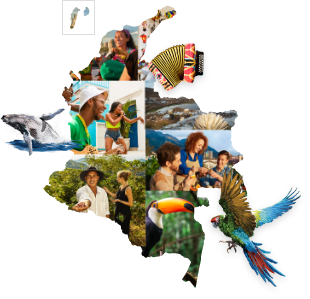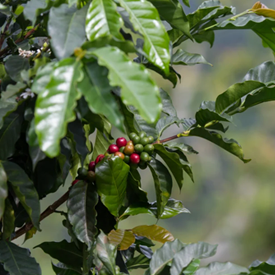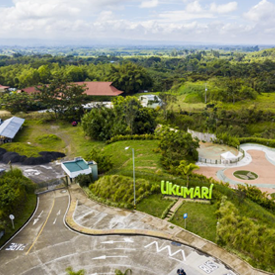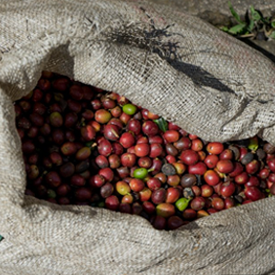The department of Antioquia, the land of paisa culture, innovation and impressive natural scenery
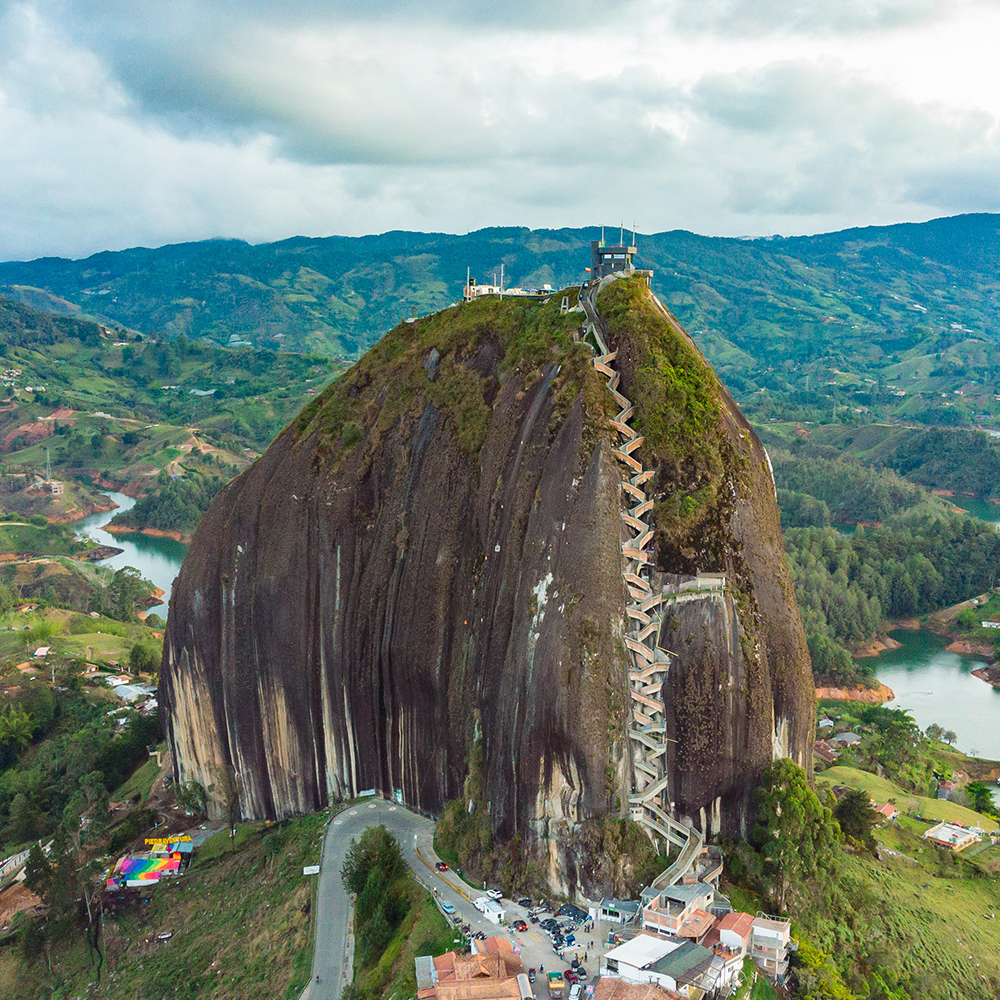
Credit: ProColombia
The department of Antioquia is one of the most mountainous regions of the country, this being an important reference in its culture, which is reflected in its achievements, its monuments, artists, music, gastronomy and tourist destinations.
History
The origin of the Antioquian culture began with the indigenous communities such as the Kalina or Caribbean people, Catía, Natube, Tahamíe and Quimbaya, of which today only 0.5% of its total initial population remains. Then with the arrival of the Spaniards, especially the Basques, a new civilization was formed thatgreatly influenced gastronomy, language, customs, etc.
Geography and destinations
Antioquia is a mountainous department surrounded by hills, peaks and summits. It is located between both mountain ranges: the Central and the Western. For this reason, Medellín is considered the 'capital of the mountain'.
Also, Antioquia is one of the most touristic departments not only of the Colombian Western Andes, but of the whole country. Several of the most important destinations of the Paisa culture are Comuna 13, Comuna 3-Manrique, Museo de Antioquia in Plaza de Botero and Santa Elena in Parque Arví.
On the outskirts of Medellín, there are also unique places such as the Piedra del Peñol in Guatapé, also heritage towns that are part of the Coffee Cultural Landscape such as Santa Fe de Antioquia, Jardín and Jericó.
Outstanding quote: Due to the cultural importance of the Coffee Axis in 2011, UNESCO declared it a World Heritage Site and called it the 'Coffee Cultural Landscape'.
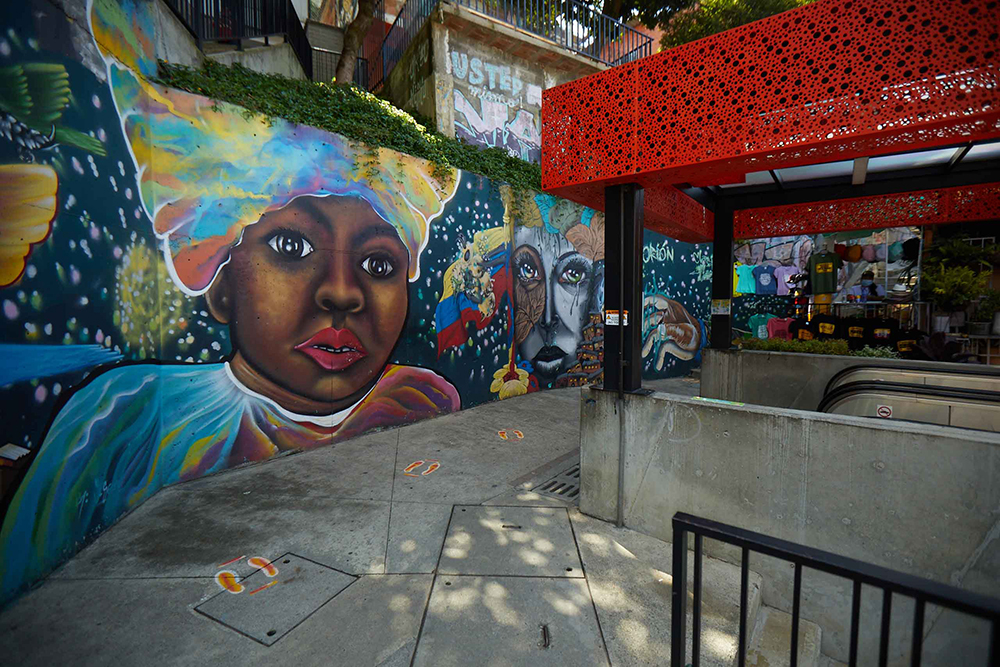
Photo caption: The Graffiti tour is one of the most popular activities in Medellín. It shows the process of transformation of Comuna13.
Gastronomy
Paisa gastronomy is inspired by European, Asian and indigenous culture. Thanks to the conditions of the territory, foods such as bananas, corn, cassava, coffee and sugar cane are grown. From the above are derived traditional dishes such as bandeja paisa, cold cuts, Antioquia beans, mazamorra paisa, arepa with cheese and Antioquia tamale.
Featured: Download the magazine of the department of Risaralda and get to know its gastronomic offer.
Culture paisa
The Paisa culture is formed from Spanish, mestizo, Afro-descendant and indigenous customs and traditions. It is also worth mentioning that its culture is forged as a result of being located in a mountainous territory.
The paisa culture is characterized by its development and innovation, being the only territory in the country to have metro and tram, in addition to a special cable car line. It is also a region that promotes art and you can see scenarios such as the Museum of Antioquia, the Plaza de Botero, Parque Explora and the Castillo Museum.
4 simbolic keys of Antioquia
The department has four symbols that are part of its identity: from above, triumph, superlative and caterpillar to butterfly.
From above it is a symbol that speaks about overcoming obstacles and the process of reaching the goal. Then, the triumph is an apology for the effort and satisfaction of having reached the top. For its part, the superlative is the representation of the achievements that the Antioquian has had throughout history. Finally, from caterpillar to butterfly is the symbolism of the transformation of stigmas, from a culture once violated to a cultural and artistic community.
Festivities
In the department of Antioquia there are four important festivities: the Corn Festival in Sonsón, the Banana Festival in Sabaneta, the Fruit Festival in Sopetrán and the Flower Fair in Medellín.
The latter has brought with it two types of cultures: that of the silletero that symbolizes the strength of the flower farmer and that of the muleteer who is an example of perseverance and hard work. Both typical of Antioquia DNA.
Finally, the history of the department of Antioquia is of the region that rises despite the obstacles and learns from thepast. It is also the culture that invites its people to feel proud of the path traveled, but also to continue innovating in art, culture and technology.
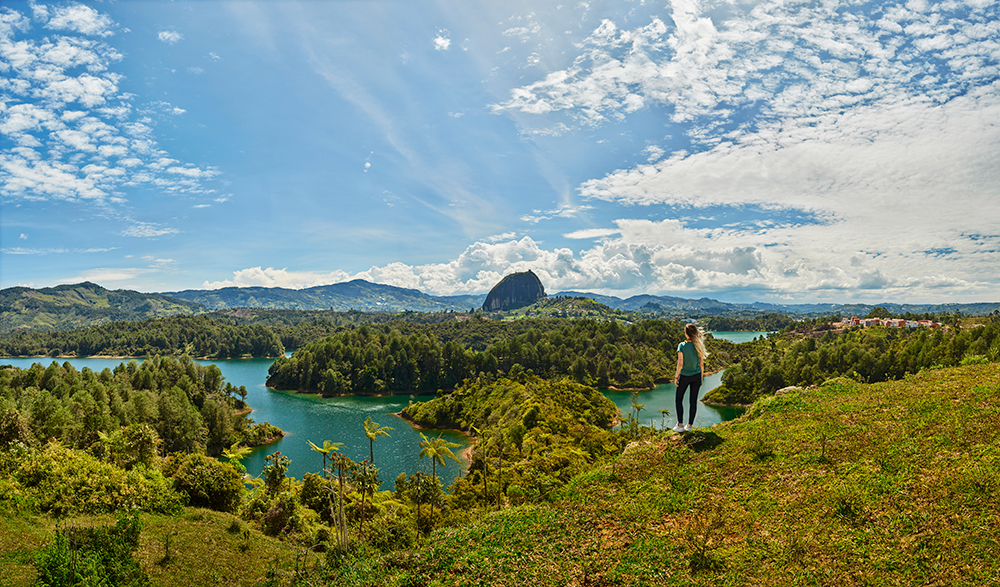
Photo captay: La Piedra del Peñolis a monolith 220 m high. This stone consists of 740 steps.





